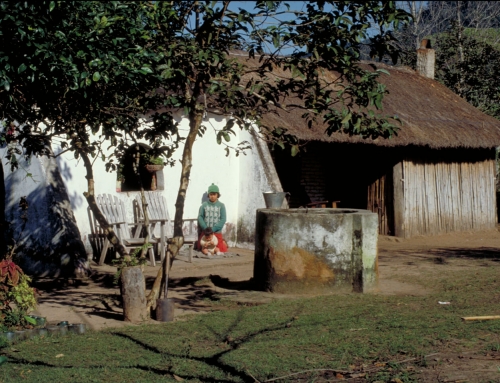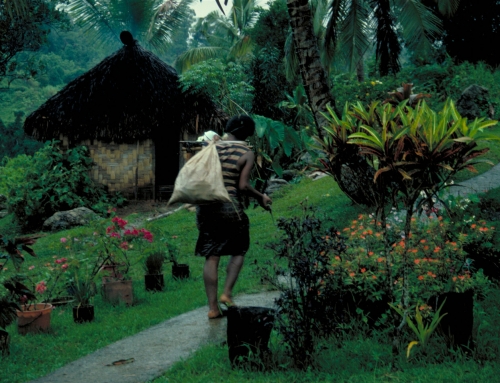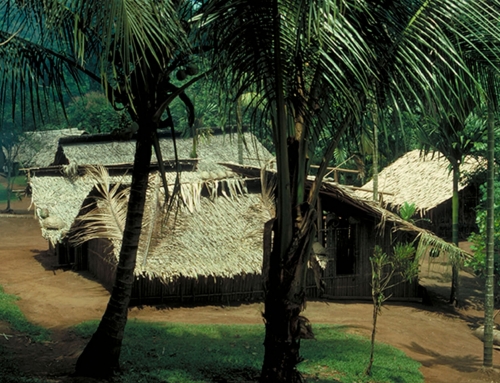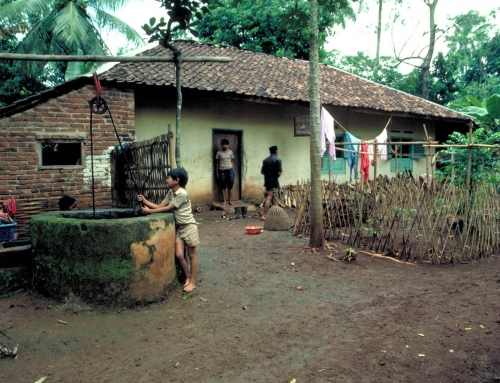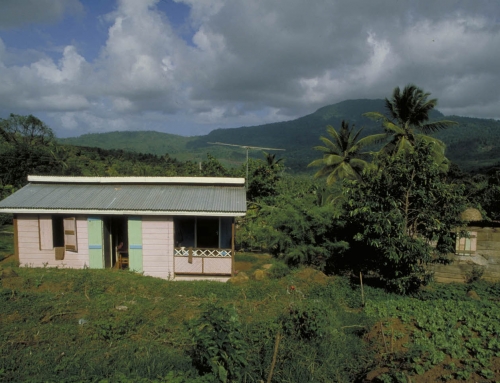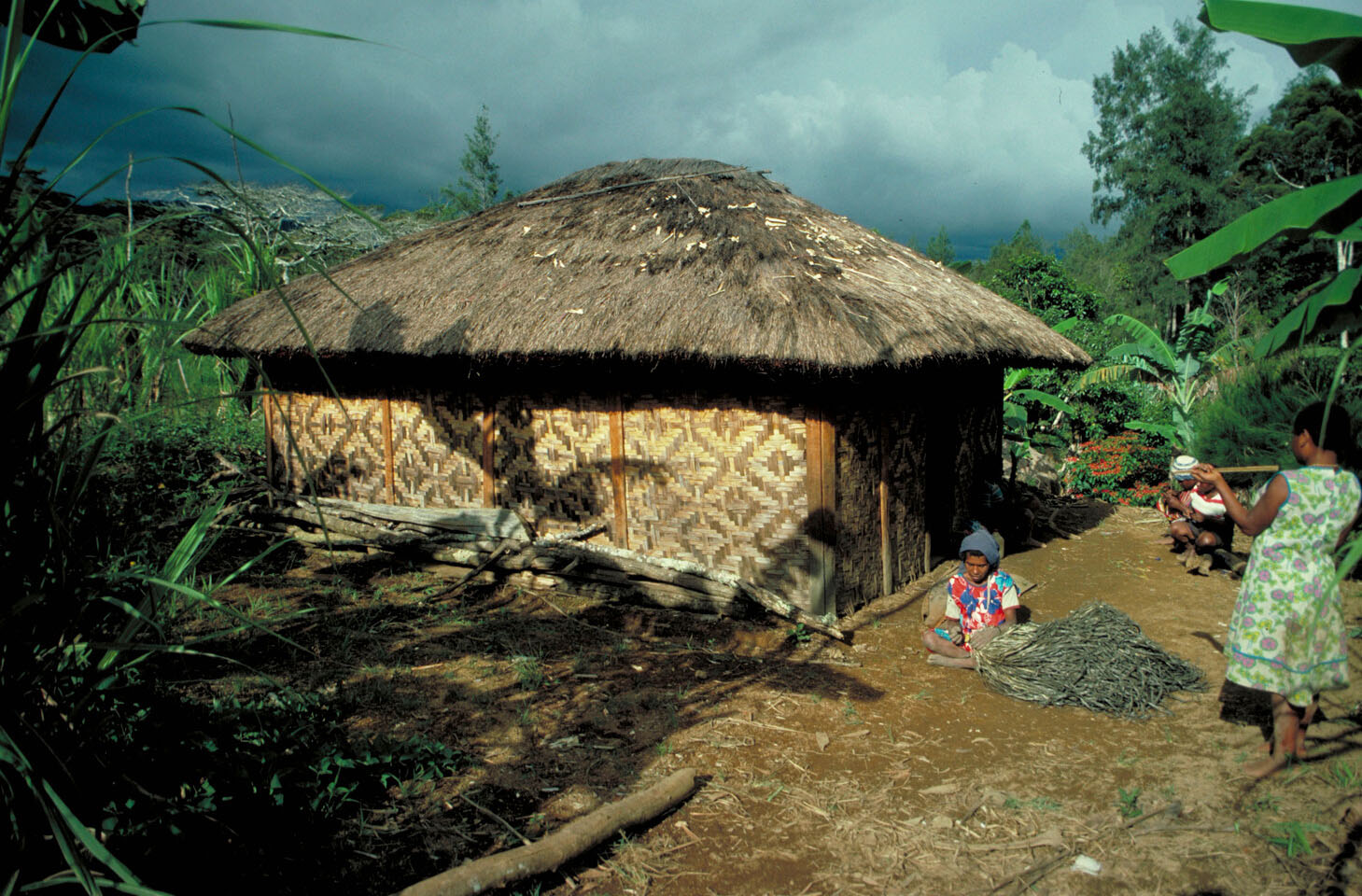
The three piglets that have slept under Lus’s bed
At 2,500 metres, it is cold in the morning in the highlands of Papua New Guinea. The tree cane huts that house the fives of Homoko Alembo are still in darkness. In one, Lus gets up from the elevated cane bed where she has slept with her daughter Mule Melin, blows on the embers of last night’s fire, then opens the door. The three piglets that have slept under Lus’s bed scamper outside to join the 13 kept in the tiny pig shed.
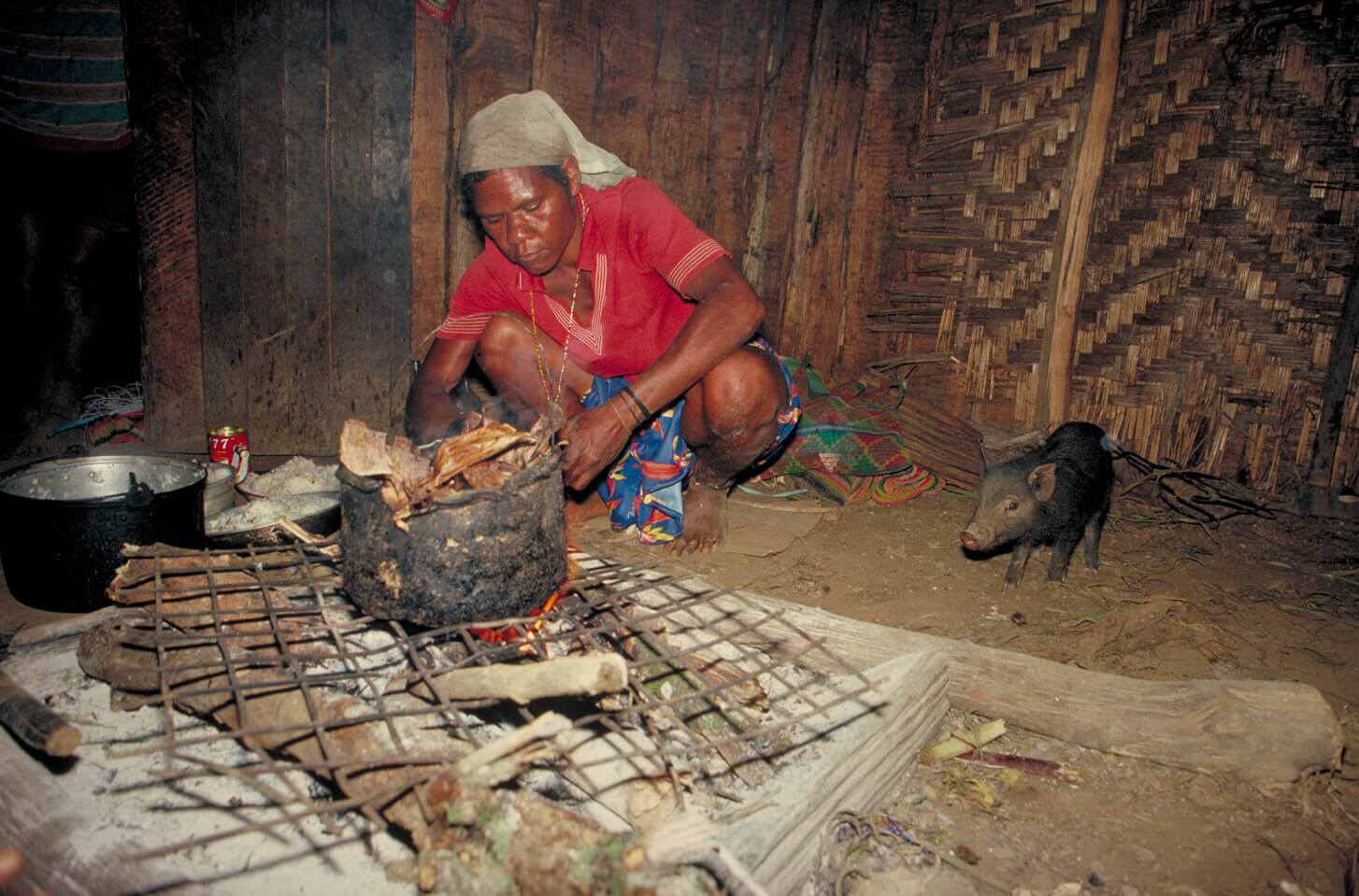
It is the men who raise the boys
Homoko Alembo’s five wives live with the young children and the girls in three huts. Upon reaching the age of 7, the boys move in with the men who will raise them from then on in their own house.
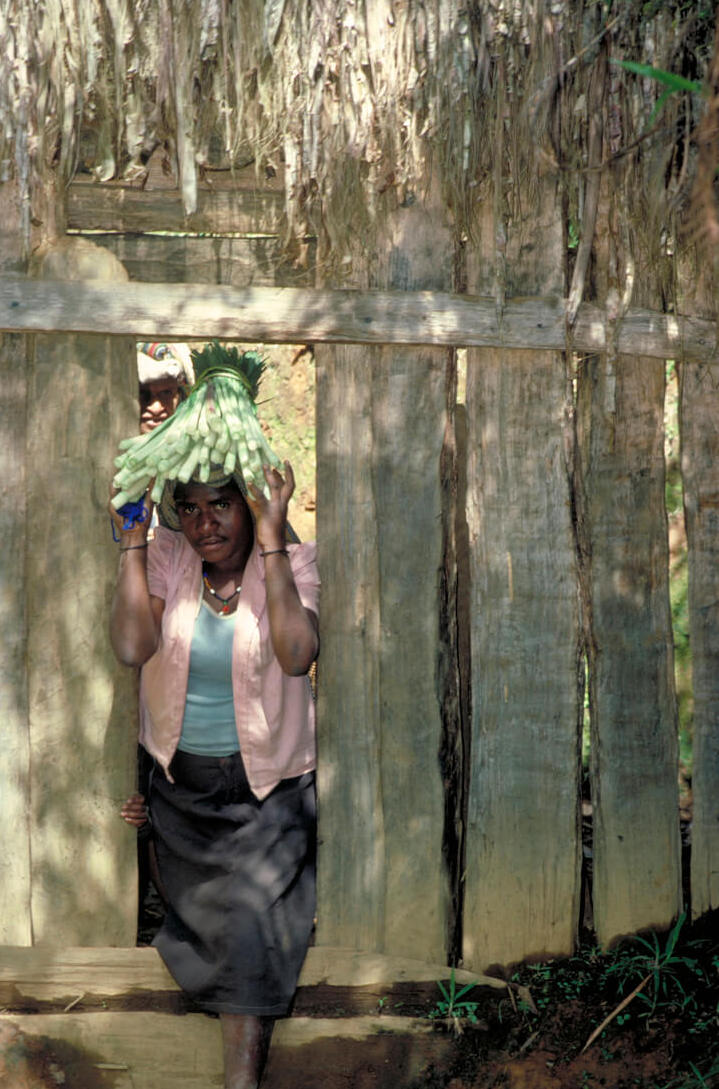
Last year they burned our house
As we were preparing to go to bed, a young girl called out telling us to come out of the hut. Houses were burning in the mountains, she said. “I hope they do not come and burn our house,” the women said. “Last year they came and set it on fire.” We stared at the mountains for some time and then we went inside.
Fifteen minutes later, everybody was asleep except for me. I could not get to sleep as calmly or as rapidly as my hosts. Three little pigs had settled in for the night under our only bed. There was a strong smell of their urine wafting up from below. The wood that served as our mattress was hard and the space could have fit two-and a half persons but we were four in the bed. I was on my back and could not move, turn left or right. On the horizon, houses were burning and I kept thinking of Lus’s words: “If they come, you run!” My head was overflowing with worry. I asked myself how my bedmates could sleep through this and if the two doctors who had introduced me to Homoko knew that the war had begun.
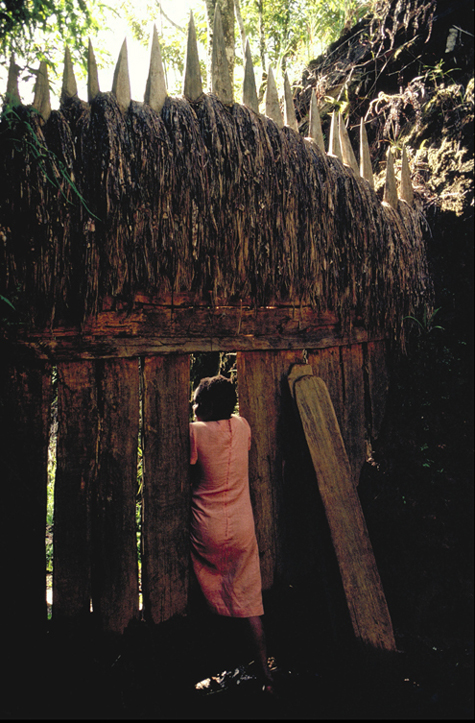
View more statistics on housing
Note: Housing is important to us. The data was taken in considération in the choice of families representing the majority.

